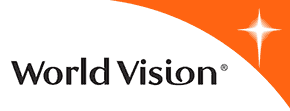World Vision

Founded in 1950 by Reverend Robert Pierce, World Vision is a global relief, development and advocacy organisation dedicated to working with children, families and communities to overcome poverty and injustice. It serves all people, regardless of religion, race, ethnicity or gender. The organisation is committed to transformational development that is community-based and sustainable, focused especially on the needs of children. At present, World Vision is one of the world’s leading humanitarian organisations with over 40,000 staff members implementing programmes of community development, emergency relief and promotion of justice in nearly 100 countries. It started working in Uganda in 1986, assisting communities in the ‘Luwero Triangle’ in central Uganda to resettle and rebuild their infrastructure after the war.
Over the course of a three-year period, EAC and World Vision’s Addressing Barriers to Enrolment and Retention in Karamoja (ABER-K) project aims to reach 40,000 OOSC in Karamoja’s Abim, Kotido and Kaabong districts. The intervention is aligned with the Government of Uganda’s priorities and the policies of the Ministry of Education and Sports (MoES). The project model is based on the assumption that if the target communities in Karamoja recognise the importance of education for their children and are supported through community structures and systems strengthening, a network of engaged community members will champion enrolment and retention campaigns. Furthermore, the project is designed to build on its previous and ongoing interventions in Karamoja’s education sector, as well as development partners, such as the Adventist Development and Relief Agency (ADRA), Save the Children, UNICEF and the World Food Programme.
Ultimately, ABER-K project strategy will prioritise community engagement; strengthening community structures and mechanisms that support education; bolstering education systems to enhance enrolment and retention; creating safe and child-friendly school environments; and developing infrastructure, including classroom construction, water and sanitation facilities (WASH) and girl-changing rooms.
For more information about this EAC Implementing Partner, please visit the World Vision website.










